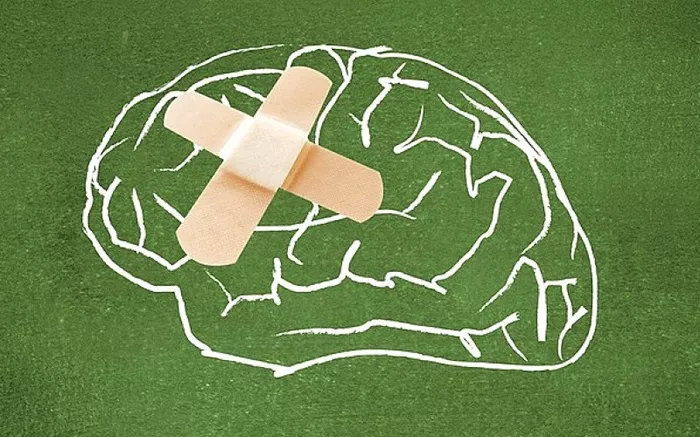Strength training is a crucial component of a well-rounded fitness regimen. It builds muscle mass, enhances strength, and improves overall physical performance. However, what you do after your strength training session is just as important as the workout itself. Proper post-workout practices can significantly influence your recovery, muscle growth, and future performance. This article delves into the essential steps you should take after strength training to maximize your results and maintain optimal health.
1. Cool Down and Stretching
Importance of Cooling Down
After an intense strength training session, your body needs a period of gradual recovery to return to its pre-exercise state. Cooling down helps to:
1. Gradually lower your heart rate and breathing.
2. Prevent blood pooling in the veins.
3. Reduce muscle stiffness and soreness.
4. Enhance overall flexibility.
Effective Cool-Down Techniques
An effective cool-down should last about 5-10 minutes and include light aerobic activities such as walking or slow cycling. These activities help maintain blood circulation and facilitate the removal of metabolic waste products like lactic acid from your muscles.
1. Stretching for Flexibility and Recovery
2. Post-workout stretching is essential to maintain and improve flexibility. It also aids in muscle recovery by:
3. Increasing blood flow to the muscles.
4. Enhancing the delivery of nutrients required for repair.
5. Reducing the risk of injury.
Focus on static stretching, where you hold each stretch for 20-30 seconds. Target the major muscle groups worked during your training, including hamstrings, quadriceps, calves, chest, and shoulders.
2. Hydration and Nutrition
Rehydrating Your Body
Strength training leads to fluid loss through sweat, making rehydration a critical aspect of recovery. Proper hydration helps:
1. Restore fluid balance.
2. Maintain electrolyte levels.
3. Support muscle recovery and reduce cramping.
Water is typically sufficient for rehydration, but in cases of prolonged or intense workouts, a sports drink containing electrolytes can be beneficial.
Protein for Muscle Repair
Protein is essential for repairing and building muscle tissue. Aim to consume a source of high-quality protein within 30 minutes to 2 hours after your workout. Options include:
1. Whey protein shakes.
2. Chicken breast.
3. Greek yogurt.
4. Eggs.
Carbohydrates for Glycogen Replenishment
Carbohydrates replenish glycogen stores depleted during exercise. Combining protein with carbohydrates can enhance protein synthesis. Good post-workout carbohydrate sources include:
1. Whole grain bread.
2. Sweet potatoes.
3. Fruits like bananas and berries.
3. Rest and Recovery
Active Recovery
Active recovery involves low-intensity activities that promote blood circulation and help alleviate muscle soreness. Activities include:
1. Light jogging.
2. Swimming.
3. Yoga.
4. Passive Recovery
Passive recovery involves complete rest, allowing your body to fully recuperate. This includes getting adequate sleep and taking rest days.
Sleep and Muscle Recovery
Sleep is when most muscle repair and growth occur. Aim for 7-9 hours of quality sleep per night to ensure optimal recovery. Poor sleep can hinder your recovery process, affect hormone levels, and reduce overall performance.
4. Monitoring Progress and Adjusting Your Routine
Tracking Your Performance
Keeping track of your workouts helps you monitor progress and make necessary adjustments. Record details such as:
1. Exercises performed.
2. Sets and repetitions.
3. Weights used.
4. Duration and intensity of your workout.
Listening to Your Body
Pay attention to how your body responds to your training. Signs of overtraining include:
1. Persistent fatigue.
2. Decreased performance.
3. Increased susceptibility to injuries.
4. Mood changes.
If you experience these symptoms, consider reducing your training intensity or increasing your rest periods.
Adjusting Your Training Program
Periodically reassess your training program to ensure it aligns with your fitness goals. Incorporate variety to prevent plateaus and keep your workouts engaging. This might include:
1. Changing your exercises.
2. Varying your rep and set schemes.
3. Incorporating different training modalities like supersets or drop sets.
5. Mental Recovery and Relaxation
Relaxation Techniques
Incorporate relaxation techniques to support mental recovery:
Meditation: Helps clear your mind and reduce stress.
Deep Breathing Exercises: Can lower heart rate and promote relaxation.
Progressive Muscle Relaxation: Involves tensing and then slowly relaxing each muscle group to release tension.
6. Injury Prevention and Management
Preventing Injuries
Preventing injuries is better than treating them. Post-workout practices that help prevent injuries include:
1. Proper cool-down and stretching.
2. Adequate hydration and nutrition.
3. Listening to your body and not pushing through pain.
Managing Minor Injuries
If you do experience minor injuries, such as strains or sprains, implement the RICE method:
Rest: Avoid activities that aggravate the injury.
Ice: Apply ice to reduce swelling and pain.
Compression: Use a bandage to compress the affected area.
Elevation: Elevate the injured limb to reduce swelling.
Seeking Professional Help
For more serious injuries, consult a healthcare professional. Physiotherapists and sports medicine specialists can provide targeted treatment and rehabilitation programs.
7. Supplementation
Common Supplements for Recovery
While a balanced diet should provide most of the nutrients needed for recovery, supplements can be beneficial in certain cases. Common post-workout supplements include:
Protein Powders: For convenient protein intake.
Branched-Chain Amino Acids (BCAAs): To support muscle recovery and reduce soreness.
Creatine: Enhances muscle recovery and strength gains.
8. Hydration
Replenishing Fluids
Post-workout hydration is crucial for recovery. Sweat loss during exercise can lead to dehydration, which impairs muscle recovery and performance.
Water vs. Sports Drinks
For most workouts, water is sufficient to rehydrate. However, for longer, more intense sessions, sports drinks can help replenish electrolytes lost through sweat. Look for drinks that contain sodium, potassium, and magnesium.
Monitoring Hydration Levels
Keep an eye on your hydration levels by:
1. Checking the color of your urine (light yellow indicates proper hydration).
2. Weighing yourself before and after workouts to determine fluid loss.
3. Massage and Self-Myofascial Release
9. Massage and Self-Myofascial Release
Benefits of Massage
Massage can alleviate muscle soreness and promote relaxation. It improves blood circulation, which helps deliver nutrients to muscles and remove waste products.
Self-Myofascial Release Techniques
Self-myofascial release involves using tools like foam rollers to release tension in the muscles and fascia. Benefits include:
1. Reduced muscle soreness.
2. Improved flexibility and range of motion.
3. Enhanced recovery.
Conclusion
Post-strength training practices are vital for recovery, muscle growth, and overall health. Incorporating a structured cool-down, proper nutrition, hydration, rest, and mental recovery strategies will maximize your gains and keep you on track toward your fitness goals. By paying attention to your body’s needs and adopting a holistic approach to recovery, you can enhance your performance and enjoy the long-term benefits of strength training.
[inline_related_posts title=”You Might Be Interested In” title_align=”left” style=”list” number=”6″ align=”none” ids=”9368,9365,9298″ by=”categories” orderby=”rand” order=”DESC” hide_thumb=”no” thumb_right=”no” views=”no” date=”yes” grid_columns=”2″ post_type=”” tax=””]
































